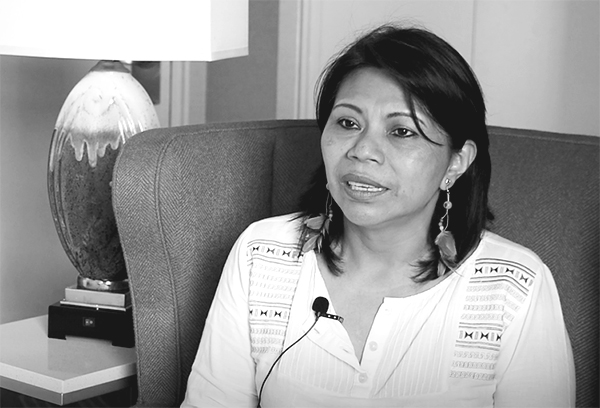
- Indigenous and rural women make up more than half of the up to 2.5 billion people who use and rely on the world's collectively held lands.
- Indigenous and rural women are advocates, leaders, and experts on issues like food security and climate change. Recognizing their rights is not only a matter of justice but also critical to achieving global climate and development goals.
- Yet for too long, global development agendas have overlooked their specific needs and contributions, or chose to view them only as victims.
- In a new video, advocates from around the world speak out on why land rights hold particular significance for indigenous and rural women.
|
“The earth is what gives life. It is that which gives food; It is the dispensation of traditional medicines. And for people who depend on forests in their territory, it is very important because without it there is no health, there is no education, there is no collective life for Indigenous Peoples, and above all for women.”
— Fany Kuiru, indigenous Uitoto leader (pictured above)
|
|
|
|
|
|
|
|
|
|





